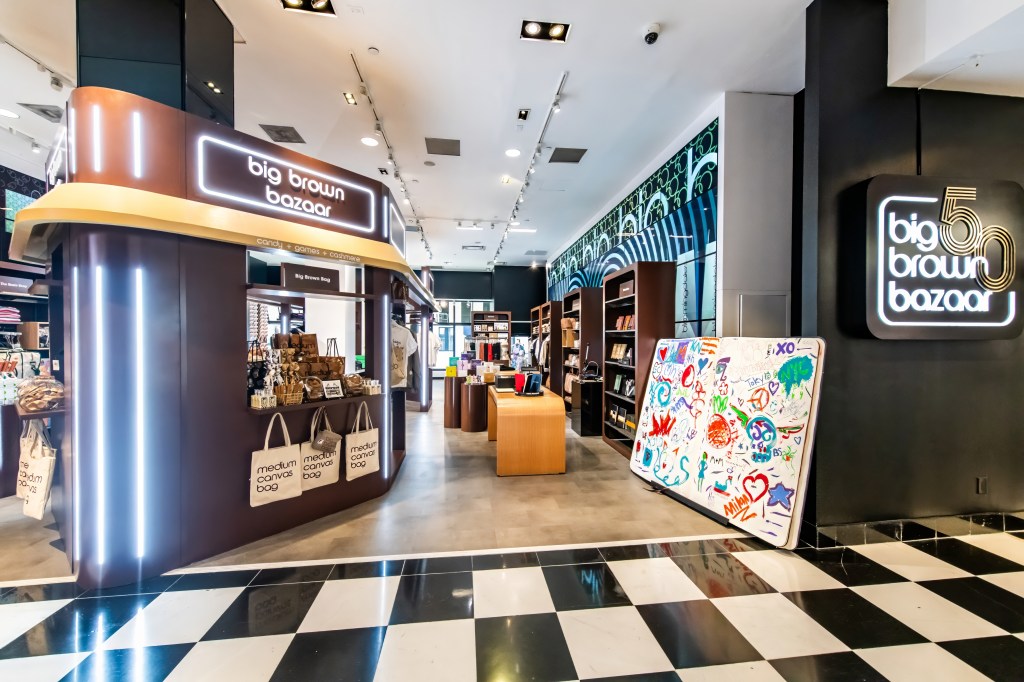LUNA MISSION: Gozen, the biomaterial company behind Balenciaga’s maxi bathrobe coat, has raised $3.3 million in seed funding.
The company created Lunaform, which made its fashion debut on the spring 2024 runway.
Hong Kong-based Happiness Capital lead the round, joined by Accelr8, Astor Management and climate tech focused fund SOSV.
“We produce advanced biomaterials with the potential to unlock circular design. With this investment, we’ve shown that we have a path to delivering on that potential at scale,” said founder and chief executive officer Ece Gozen, who founded the company in 2020.
The funding will go toward accelerating research and development, and scaling production of Lunaform, as well as other materials, and the company is planning to open a production facility in Turkey that will have a capacity of 1 million square feet.
Lunaform distinguishes itself from plant-based leathers as the material is formed by nanocellulose microorganisms during a fermentation process, meaning it’s entirely vegan and plastic free.
The production process takes just 10 days and bypasses the need for tanning.
“There is a lot of competition now in animal-free leather. But I believed that Gozen’s approach could surpass all others in both performance and economics, and we’ve already demonstrated this by launching our first commercial product — at [Paris] Fashion Week no less. We’ve accomplished in months what it’s taken others years to do,” said SOSV general partner and IndieBio managing director Po Bronson.
Lunaform is available in 13-square-foot sheets and a minimum thickness of 0.2 mm, and can be customized in thickness and texture, eliminating the need for layering in other materials, like polyurethane. Gozen said the material is stronger than traditional animal leather and the single sheets also have applications in home furnishings and the automotive industry.

REALITY BITES: Demand for “preferred” raw materials — those that have reduced climate impacts versus a conventional standard textile — could exceed supply by as much as 133 million tons by 2030, putting the fashion industry increasingly under pressure as businesses try to hit announced sustainability goals.
That’s according to a new report titled, “Sustainable Raw Materials Will Drive Profitability for Fashion and Apparel Brands,” by Boston Consulting Group, in collaboration with Textile Exchange and Quantis.
BCG looked at 36 brands and companies that represent more than 10 percent of the industry’s revenues, and notes that 85 percent have publicly declared decarbonization targets for their supply chains by 2030, but are unprepared to hit those targets as the time clock ticks down.
The report projects that just 19 percent of materials produced in 2030 will be “preferred,” given the current lack of scale and that companies and brands are not investing enough to ensure growers to expand their supply.
“Fashion and apparel brands need to take immediate action to invest in the supply of preferred raw materials, thereby securing resources and transforming their business models for a sustainable future,” said Philipp Meister, global lead for fashion and sporting goods at Quantis. “This will require brands to rethink product portfolios, strengthen supplier relationships and build company-wide engagement — all of which could take years.”
Brands that are able to invest and stabilize their sustainable supply chains will be well-placed to capture profit benefits.
The report also noted that there are roughly 35 new pieces of legislation set to go into effect around the world, and particularly in the E.U., that cover everything from product design through the life cycle and recovery of post-consumer waste.
All of these upcoming rules will require overhauls of operations, data flows and information systems, but again, the report finds that many brands will “struggle to adapt.” As an example, BCG looked at the U.K.’s Modern Slavery Act from 2015 and found that only 15 percent of luxury brands are currently compliant.
“Failure to comply poses a real threat to a brand’s bottom line,” the report stated.
“In the face of the climate crisis, the policy landscape and investor and consumer scrutiny, fashion and apparel brands cannot afford to underinvest in their raw-materials strategies any longer,” added Beth Jensen, director of Climate+ Impact at Textile Exchange. “Brands must act boldly now to invest in the supply chain relationships that will enable achievement of their climate goals by 2030 — a key milestone year that is rapidly approaching.”



